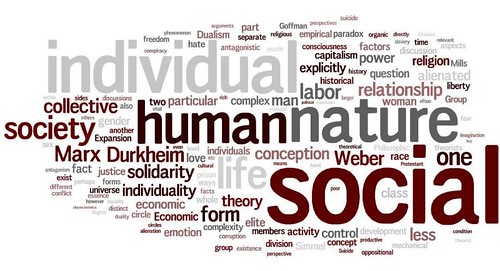Essay on Cyclical Theories of Social Change – “Cyclical theories of social change focus on the rise and fall of civilisations attempting to discover and account for these patterns of growth and decay” – (Ian Robertson). Spengler, Toynbee and Sorokin can be regarded as the Champions of this theory. Their ideas may be briefed here.
(a) Spengler: ‘The Destiny of Civilisations’:
ADVERTISEMENTS:
Oswald Spengler, a German school teacher, in his book “The Decline of the West”-1918, pointed out that the fate of civilisations was a matter of “destiny”. Each civilisation is like a biological organism and has a similar life-cycle; birth, maturity old age and death.
After making a study of eight major civilisations, including the West, he said that the modern Western Society is in the last stage, i.e. old age. He concluded that the Western Societies were entering a period of decay – as evidenced by wars, conflicts, and social breakdown that heralded their doom.
This theory is almost out of fashion today. His idea of ‘destiny’ is hardly an adequate explanation of social change. His biological analogy is also too unrealistic and his work is too mystical and speculative.
(b) Toynbee: ‘Challenge and Response’:
ADVERTISEMENTS:
Arnold Toynbee, a British historian with enough sociological insight has offered a somewhat more promising a theory of social change. His famous book “A Study of History”-1946, a multivolume work, draws on materials from 24 civilisations.
The key—concepts in Toynbee’s theory are those of “challenge and response”. “Every society faces challenges-at first, challenges posed by the environment; later challenges from internal and external enemies.
The nature of the responses determines the society’s fate. The achievements of a civilisation consist of its successful responses to challenges; if it cannot mount an effective response, it dies”.-(Ian Robertson).
Toynbee’s views are more optimistic than those of Spengler’s, for he does not believe that all civilisations will inevitably decay. He has pointed out that history is a series of cycles of decay and growth. But each new civilisation is able to learn from the mistakes and tomorrow from cultures of others.
ADVERTISEMENTS:
It is, therefore, possible for each new cycle to offer higher levels of achievement. Still he has not explained why some societies are able to offer effective responses to their challenges while others do not, or why a society should overcome one challenge but become a victim of another.
(c) Sorokin: ‘Sensate’ and ‘Ideational’ Culture:
The Russian-American sociologist, Pitirim A Sorokin, in his book “Social and Culture Dynamics”-1938, has offered another explanation of social change. His work has had a more lasting impact on sociological thinking. Instead of viewing civilisations into terms of development and decline he proposed that they alternate or fluctuate between two cultural extremes: The “sensate” and the “ideational’.
The sensate culture stresses those things which can be perceived directly by the senses. It is practical, hedonistic, sensual, and materialistic. Ideational Culture emphasises those things which can be perceived only by the mind. It is abstract, religious, concerned with faith and ultimate truth. It is the opposite of the sensate culture. Both represent ‘pure’ types of culture.
Hence no society ever fully conforms to either type. Without mentioning the causes, he said that as the culture of a society develops towards one pure type, it is countered by the opposing cultural force. Cultural development is then reversed moving towards the opposite type of culture.
In brief, too much emphasis on one type of culture leads to a reaction towards the other. “Societies contain both these impulses in varying degrees and the tension between them creates long-term instability”. Between these types, of course, there lies 9 third type ‘ideastic’ cultures. This is a happy and a desirable blend of the other two, but no society ever seems to have achieved it as a stable condition.
Sorokin’s theory has not been accepted by the sociologists for it portrays his prejudices and probably his disgust with the modern society. His concepts of ‘sensate’ and ‘ideational’ are purely subjective. His theory is in a way speculative and descriptive. It does not provide an explanation as to why social change should take this form. Thus, the cyclical theories, in general are not satisfactory.

